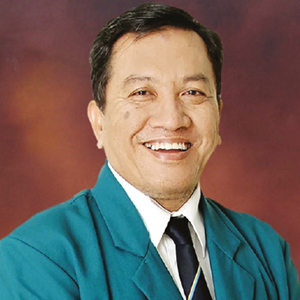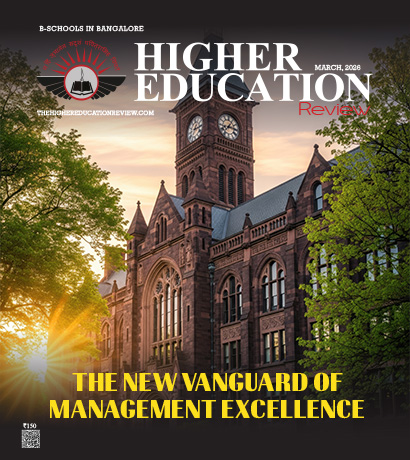Education and Collaboration in the Global Era

Dr. Djuwari, Head of Research Journal Division STIE Perbanas Surabaya - Indonesia
Education and collaboration among the universities, colleges, and schools can be of a great strategy, in terms of equality in education. In addition, no one in the globe can deny the importance of education. I always reiterated this statement in a keynote speech, in front of the alumni of American University of Sovereign Nations /AUSN, in Bataan, Manila 2016. Most of the leaders of the nations in the world always assert that education be the sole factor for improving the nations' lives in any dimensions.
The leaders can be either the national leaders, regional leaders, or even the local leaders. They talk a lot about it in their vision and mission. For example, education is always asserted in any program of the presidential election. During the campaign, the candidates also promote their vision and mission in front of the spectators. One of the topic being spoken during the campaign is the education program. In the Philippines, the candidates also mentioned the topic about education program. In my country, Indonesia, during the presidential campaign, the candidates also stated the program about education.
When considering the importance of education, we can judge that the nations throughout the world need education as the basic necessity. However, the world public is in divergence. People living in the USA can be different from those living in other countries. In Asia, Africa, Australia, and, Europa, and in the USA, all the people need education. But, the systems and the infrastructures can be in different qualities.
In order that the world public can get the same level of education quality, collaboration among the nations is salient. Universities, colleges, and secondary schools among the nations in different countries can start initiating educational collaboration. The systems and the process of education are the two aspects in education that require attention.
The systems and the process of education are the two aspects in education that require attention.
When the collaboration is initiated, there are some aspects to be discussed before the process of the collaboration in the field. First of all, the social, cultural, and psychological values can be taken into account (Djuwari's speech in Asia Summit on Higher Education in Singapore 2015). This is the first step when any universities, colleges, or schools start to have collaboration. Each university, college, or school has their own unique vision and mission. Behind their vision and mission, there are values they have to keep.
Secondly, the discussion on a certain program such as research, teaching and learning process, curriculum, and the like. It is better to focus on one of those programs. When one program of any field is successful, another program can be initiated. In the long run, all aspects of education can be executed together.
The third is the execution in the field when a certain program of the above has been chosen. In this respect, there are some steps to be paid attention. Austin, Ann E. et.al, (1991) suggested that any program of collaboration take basic stages: (1) choosing team members; (2) dividing the labor; (3) establishing work guidelines; and (4) terminating the collaboration.
Choosing the team members needs some consideration. The best way is by looking at their track record in terms of collaboration such as communication skill and foreign language, preferably English. Another consideration is their expert. For example, when the program in research is chosen, the faculties who have expertise in that field must be the priority.
It is common that the collaboration process often find problem dealing with inequality of power, integrity, and other aspects related to divergent factors among the team members, especially when it involves different countries and their social and cultural aspects. Therefore, it is also common in any collaboration, after having been initiated, it stops in vacuum.
In order that the common problem above does not exist, the first time of the collaboration program is learning the vision and mission of each university, college, or school. Understanding the values behind the vision and mission is the key to success for a good collaboration.
Above all, the most important goal of collaboration in education among the nations is to make the world public get a balanced education quality. By doing collaboration among the universities, colleges, or schools for all the nations, the human resources in any nation can get equal opportunity in any job. In other words, it can reduce the unemployment, especially dominated by the workers with low-level education.
Dr. Djuwari
Apart from being the Head of Research Journal Division, STIE Perbanas Surabaya Indonesia, Dr. Djuwari is also the President of International Association of Scholarly Publishers, Editors, and Reviewers (IASPER). He had dedicated his time as the director of Language Laboratory development (1989 -2003), (Vice Rector/ President for students affairs at this college 2000-2003 while also as the Director of Language Laboratory) and he is now still the Director of Language Laboratory at the same college. During the period of 1989-2003, he had been preoccupied with writing some course books for his students, e.g., English for Accounting, English for Management, English for Banking, English for Stock Exchange, and some textbooks of English for Business Writing. He is also teaching Bahasa Indonesia (Indonesian language).
The leaders can be either the national leaders, regional leaders, or even the local leaders. They talk a lot about it in their vision and mission. For example, education is always asserted in any program of the presidential election. During the campaign, the candidates also promote their vision and mission in front of the spectators. One of the topic being spoken during the campaign is the education program. In the Philippines, the candidates also mentioned the topic about education program. In my country, Indonesia, during the presidential campaign, the candidates also stated the program about education.
When considering the importance of education, we can judge that the nations throughout the world need education as the basic necessity. However, the world public is in divergence. People living in the USA can be different from those living in other countries. In Asia, Africa, Australia, and, Europa, and in the USA, all the people need education. But, the systems and the infrastructures can be in different qualities.
In order that the world public can get the same level of education quality, collaboration among the nations is salient. Universities, colleges, and secondary schools among the nations in different countries can start initiating educational collaboration. The systems and the process of education are the two aspects in education that require attention.
The systems and the process of education are the two aspects in education that require attention.
When the collaboration is initiated, there are some aspects to be discussed before the process of the collaboration in the field. First of all, the social, cultural, and psychological values can be taken into account (Djuwari's speech in Asia Summit on Higher Education in Singapore 2015). This is the first step when any universities, colleges, or schools start to have collaboration. Each university, college, or school has their own unique vision and mission. Behind their vision and mission, there are values they have to keep.
Secondly, the discussion on a certain program such as research, teaching and learning process, curriculum, and the like. It is better to focus on one of those programs. When one program of any field is successful, another program can be initiated. In the long run, all aspects of education can be executed together.
The third is the execution in the field when a certain program of the above has been chosen. In this respect, there are some steps to be paid attention. Austin, Ann E. et.al, (1991) suggested that any program of collaboration take basic stages: (1) choosing team members; (2) dividing the labor; (3) establishing work guidelines; and (4) terminating the collaboration.
Choosing the team members needs some consideration. The best way is by looking at their track record in terms of collaboration such as communication skill and foreign language, preferably English. Another consideration is their expert. For example, when the program in research is chosen, the faculties who have expertise in that field must be the priority.
It is common that the collaboration process often find problem dealing with inequality of power, integrity, and other aspects related to divergent factors among the team members, especially when it involves different countries and their social and cultural aspects. Therefore, it is also common in any collaboration, after having been initiated, it stops in vacuum.
In order that the common problem above does not exist, the first time of the collaboration program is learning the vision and mission of each university, college, or school. Understanding the values behind the vision and mission is the key to success for a good collaboration.
Above all, the most important goal of collaboration in education among the nations is to make the world public get a balanced education quality. By doing collaboration among the universities, colleges, or schools for all the nations, the human resources in any nation can get equal opportunity in any job. In other words, it can reduce the unemployment, especially dominated by the workers with low-level education.
Dr. Djuwari
Apart from being the Head of Research Journal Division, STIE Perbanas Surabaya Indonesia, Dr. Djuwari is also the President of International Association of Scholarly Publishers, Editors, and Reviewers (IASPER). He had dedicated his time as the director of Language Laboratory development (1989 -2003), (Vice Rector/ President for students affairs at this college 2000-2003 while also as the Director of Language Laboratory) and he is now still the Director of Language Laboratory at the same college. During the period of 1989-2003, he had been preoccupied with writing some course books for his students, e.g., English for Accounting, English for Management, English for Banking, English for Stock Exchange, and some textbooks of English for Business Writing. He is also teaching Bahasa Indonesia (Indonesian language).

